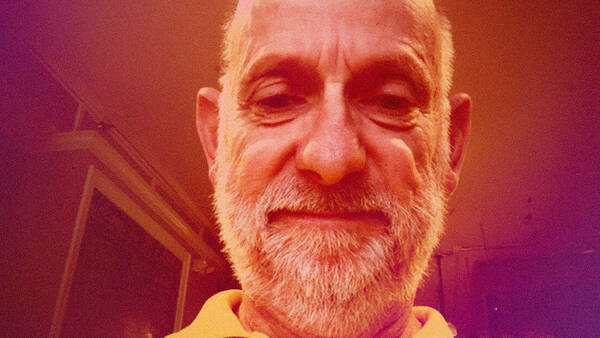As an immigration lawyer, Elizabeth Wood ’14 sees the stories behind the migration crisis. While the societal, economic, and political elements of this issue are complex, Wood focuses on making an impact by advocating for her individual clients and telling their stories.
Wood developed an early awareness of and passion for giving a voice to the personal causes of migration during an ISSLP (International Summer Service Learning Program, now known as ND Bridge) at Notre Dame. Wood spent her sophomore summer in Puno, Peru, where her host father worked as an indigenous human rights lawyer.
“I saw and spoke to my host father about his work and all he was doing to combat some of the policies that were eroding indigenous populations’ right to land. There is a long history of displacement of indigenous peoples due to illegal mining practices in Puno and other areas of Peru,” Wood recalls. “The impact of mining in these areas can displace people and force them to seek employment and opportunities in other areas,” Wood says.
Her experience in Peru sparked Wood’s interest in both law and immigration. After undergrad, she completed a fellowship with the United States’ Conference of Catholic Bishops’ Anti-Trafficking Program. The initiative focuses on advocacy and education to combat sex and labor trafficking. While enriching, Wood wouldn’t find her true calling until law school, when she interned as a first year law student at Terra Firma, a medical-legal-mental health partnership between Catholic Charities and Montefiore hospital that provides co-located healthcare and legal services to unaccompanied immigrant children and families.
“Working with clients through partnership with other providers to provide holistic services was the perfect confluence of client-facing work and policy. I knew then that I wanted to devote my career to this field,” Wood says.
Wood currently works for Sanctuary for Families, an organization that advocates for and supports survivors of domestic violence, sex trafficking, and related forms of gender violence through a comprehensive and holistic service model. As an attorney on their Immigration Intervention Project, Wood represents immigrants who have experienced gender violence in their applications for humanitarian relief, helping them to stay in the country and achieve permanency and stability.
The work is not without its challenges. Wood started her legal career as a Staff Attorney at Catholic Charities’ Unaccompanied Refugee Minors Program in 2018 at the tail end of the parent-child separation crisis. At the time, Wood defended unaccompanied immigrant children against removal in immigration court and in their applications for humanitarian relief, such as Asylum or Special Immigrant Juvenile Status.
“Having a child come and sit in your chair with you because of the need for some type of closeness; that feeling has stuck with me because of how much trauma occurred from that policy,” Wood remembers. “A lot of the children are fleeing abuse by family members, community members, or gang violence. They have little to no protections from their government. So they make this very difficult journey to the United States, and then experience further trauma that is inflicted on them by our immigration system such as long periods of detention. If you’re someone who experienced significant harm, not having that freedom of movement can remind you of what happened and cause further trauma.”
Wood finds herself often frustrated with the lack of funding and structure in the U.S. immigration system. Comprehensive congressional action is necessary to address the systemic structural issues in immigration, says Wood.
“There are cases pending in immigration court and the asylum office that have been pending for five plus years. These individuals are trying to seek protection, apply for some form of relief such as asylum, but their cases have not been adjudicated because the courts and asylum offices are so backlogged.”
Many people make the perilous journey to reach the United States every year, a testament to how dire their circumstances are back home. They are then met with a backlogged and broken immigration system. Addressing these long waits would provide much needed clarity to people fleeing violence.
“If someone is experiencing extreme violence, meaning rape and physical abuse to such an extent where their life is severely threatened, and they can’t get protection from the government – what would you do in that circumstance? What are the options?” Wood asks. “Many people face violence on their journey. They have been physically or sexually abused en route to the United States. To me that makes the option pretty singular, and the consequence of not exercising that option, meaning fleeing, is more abuse or possibly death. You don’t leave your home — everything and everyone you know — without reason. People often feel they have no other option.”
As their immigration attorney, Wood’s job is to figure out how immigrants’ experiences make them eligible for humanitarian relief, representing them in applications for asylum and other forms of humanitarian relief in either immigration court or with United States Citizenship and Immigration Services. Although the outcome does not lessen the impact of the trauma, it can serve as hope for a new life.
“I get to know such resilient human beings and work with them to highlight something that’s really awful and traumatic and help them find a stable path forward.”
Wood emphasizes that although she works with migrants to complete their applications and represent them in their legal cases, it’s her clients who must share their experiences. “They’re speaking about the harm in court, not me.” As such, it’s imperative to work with other service providers, such as medical and mental health professionals, so that adjudicators understand the impact their past harm still has on them and how that harm manifests for that individual person, says Wood.
Many of Wood’s clients whose asylum and relief requests have been approved have gone on to get jobs, attend college, and receive their green cards. Through the wins and the losses alike, though, even since before she began working directly with immigrants, Wood has held on to a core belief:
“Where you’re born, that’s just a matter of luck,” Wood says. “It’s important to look at the entire person, have compassion, and be willing to truly hear their story.”



